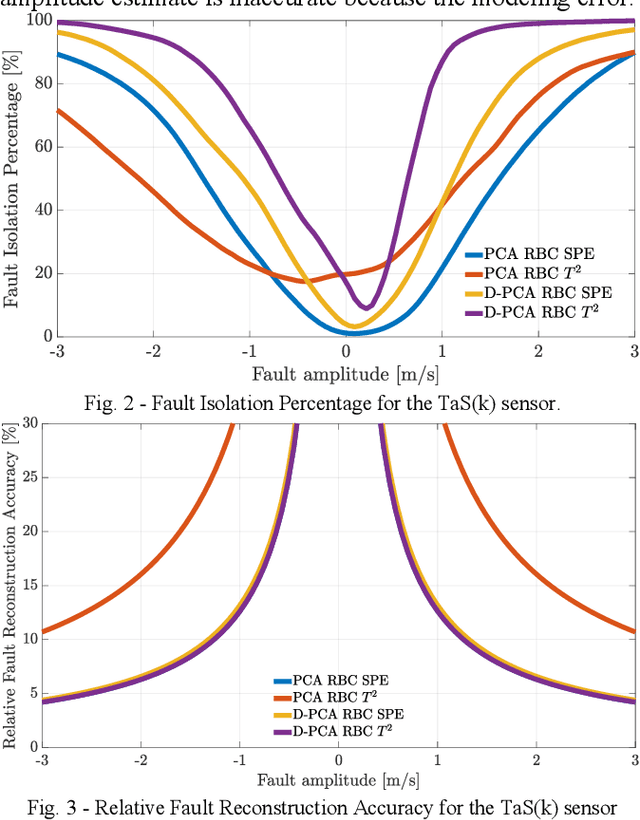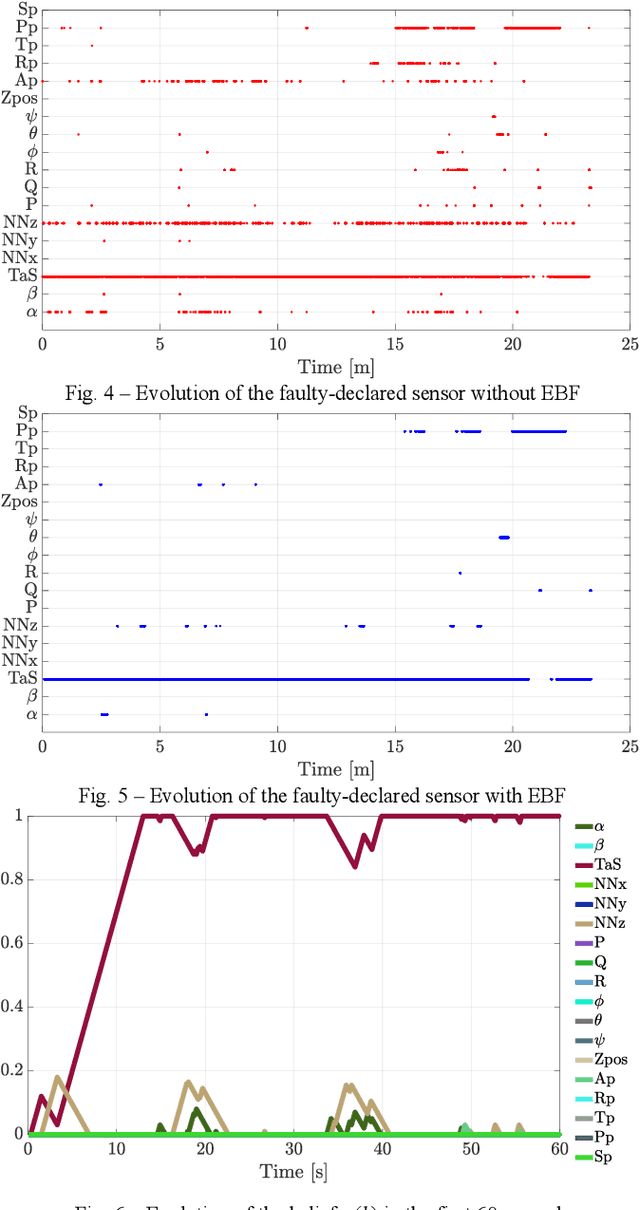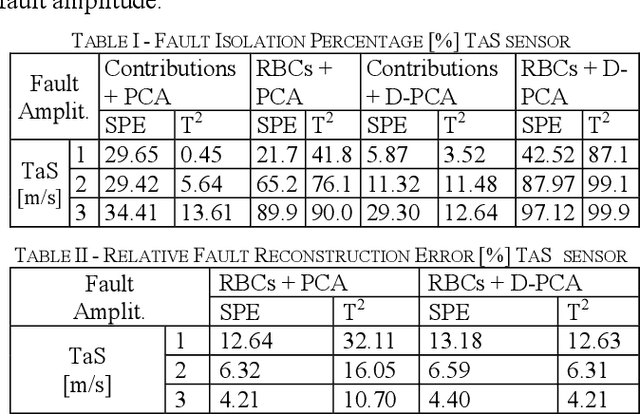M. R. Napolitano
A Robust Data-Driven Fault Diagnosis scheme based on Recursive Dempster-Shafer Combination Rule *
Dec 13, 2022Abstract:In-flight sensor fault diagnosis and recursive combination of residual signals via the Dempster-Shafer (DS) theory have been considered in this study. In particular, a novel evidence-based combination rule of residual errors as a function of a reliability measure derived from streaming data is proposed for the purpose of online robust sensors fault diagnosis. The proposed information fusion mechanism is divided into three steps. In the first step, the classic DS probability mass combination rule is applied; then, the difference between the previous posterior mass and the current prior mass associated with fault events is computed. Finally, the increment of the posterior mass of a fault event is weighted as a function of a reliability coefficient that depends on the norm of control activity. A Sensor Fault Isolation scheme based on the proposed combination rule has been worked out and compared with well-known state-of-the-art recursive combination rules. A quantitative analysis has been performed exploiting multi-flight data of a P92 Tecnam aircraft. The proposed approach showed to be effective, particularly in reducing the false alarms rate.
PCA Methods and Evidence Based Filtering for Robust Aircraft Sensor Fault Diagnosis
Dec 13, 2022


Abstract:In this paper PCA and D-PCA techniques are applied for the design of a Data Driven diagnostic Fault Isolation (FI) and Fault Estimation (FE) scheme for 18 primary sensors of a semi-autonomous aircraft. Specifically, Contributions-based, and Reconstruction-based Contributions approaches have been considered. To improve FI performance an inference mechanism derived from evidence-based decision making theory has been proposed. A detailed FI and FE study is presented for the True Airspeed sensor based on experimental data. Evidence Based Filtering (EBF) showed to be very effective particularly in reducing false alarms.
 Add to Chrome
Add to Chrome Add to Firefox
Add to Firefox Add to Edge
Add to Edge